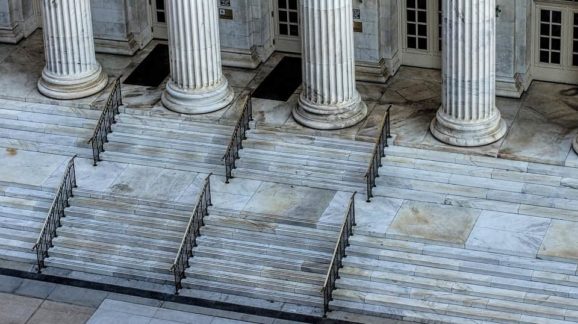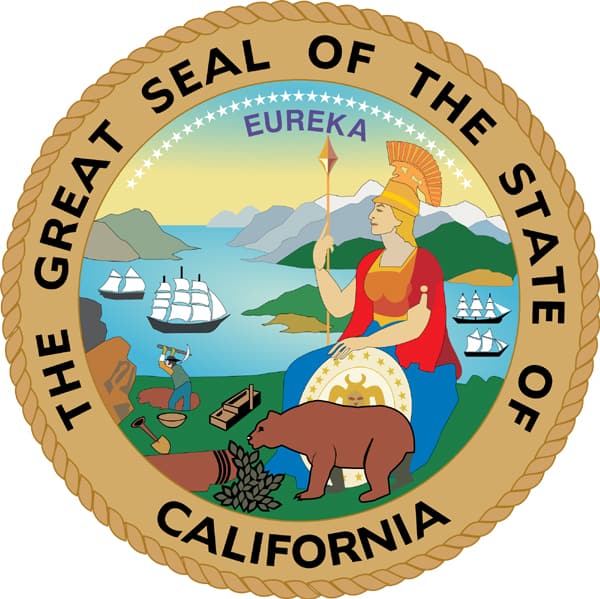Progressive States Petition Court to Declare Trump Pre-emption Rule Unlawful

 A California-led coalition of 24 states and three cities today petitioned the D.C. Circuit Court of Appeals to declare unlawful the Trump administration’s One National Program Rule, which terminates California’s motor vehicle greenhouse gas emission standards and zero emission vehicle program.
A California-led coalition of 24 states and three cities today petitioned the D.C. Circuit Court of Appeals to declare unlawful the Trump administration’s One National Program Rule, which terminates California’s motor vehicle greenhouse gas emission standards and zero emission vehicle program.
Plaintiffs challenging the One National Program Rule are California, Colorado, Connecticut, Delaware, Hawaii, Illinois, Maine, Maryland, Massachusetts, Michigan, Minnesota, Nevada, New Jersey, New Mexico, New York, North Carolina, Oregon, Pennsylvania, Rhode Island, Vermont, Washington, Wisconsin, the District of Columbia, Los Angeles, and New York.
The One National Program Rule argues that California’s greenhouse gas standards and zero emission vehicle program are pre-empted under the Energy Policy and Conservation Act (EPCA), which specifically prohibits states from adopting or enforcing laws or regulations “related to” fuel economy standards. Although Obama administration officials would later deny it under oath when testifying before Congress, the Obama-era Environmental Protection Agency and National Highway Traffic Safety Administration plainly acknowledged in their first joint rulemaking in 2010 that the relationship between motor vehicle greenhouse gas standards and fuel economy standards is “very direct and close” (75 FR 25237).
As the agencies explained, almost 95 percent of motor vehicle greenhouse gas emissions is carbon dioxide from motor fuel combustion, and there are no commercial technologies to capture or filter carbon dioxide emissions from automobile engines or tailpipes (75 FR 25424). The only feasible way to substantially reduce motor vehicle greenhouse gas emissions per mile is to decrease fuel consumption per mile. Thus, regulating motor vehicle greenhouse gas emissions chiefly and inescapably regulates fuel economy.
The California-led plaintiffs make no real attempt to disprove the close relationship between motor vehicle greenhouse gas and fuel economy standards. Rather, they argue, citing 2007 federal appeals court cases in Vermont and California, that once the EPA grants California a waiver, under Section 209(b) of Clean Air Act, to implement its own motor vehicle emission standards, those standards become federal standards and, thus, are no longer subject to the EPCA preemption provision, which applies solely to state standards. The EPA granted California’s request for a waiver in July 2009. Hence, plaintiffs claim, EPCA does not preempt the state’s greenhouse gas motor vehicle standards.
Although somewhat clever, that argument does not withstand scrutiny. As the Ninth Circuit Court of Appeals has stated, citing both the U.S. Supreme Court and California case law, preemption standards apply “ab initio”—from the beginning. The EPA may lawfully grant a Clean Air Act waiver only for California emission standards that are legally valid. Because greenhouse gas standards are “related to” fuel economy standards, California’s motor vehicle greenhouse gas standards were already null and void before the EPA even decided to review them.
Plaintiffs claim that in its deliberations over the 2007 Energy Independence and Security Act, which amended EPCA, Congress “enacted a savings clause that expressly preserved existing state authority to regulate greenhouse gas emissions. 42 U.S.C. Section 7545(o)(12).” That’s bizarre. The provision clarifies that the Renewable Fuel Standard program’s classification of biofuels according to their relative greenhouse gas intensities does not “affect the regulatory status of carbon dioxide or any other greenhouse gas, or … expand or limit regulatory authority regarding carbon dioxide or any other greenhouse gas” under the Clean Air Act. The provision is only two sentences long. It says nothing about states or state regulatory authorities.
Plaintiffs also argue that ECPA does not “authorize NHTSA to issue a regulation declaring that state laws are preempted by EPCA.” That is even weirder. EPCA authorizes NHTSA to issue regulations under EPCA, and EPCA includes a pre-emption provision. Accordingly, NHTSA has statutory authority to reasonably interpret EPCA and issue a regulation setting forth its interpretation.